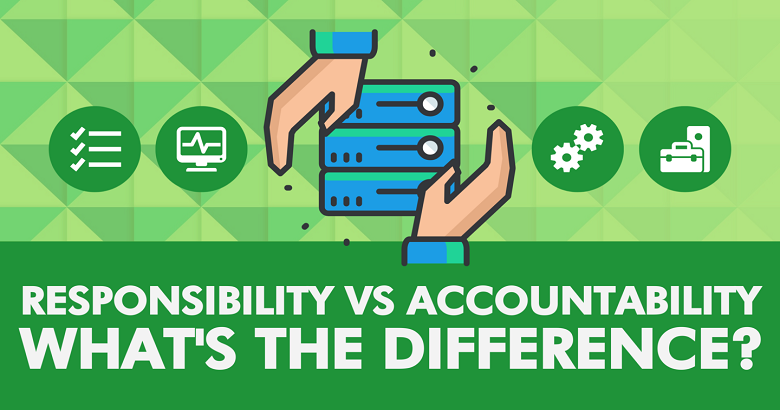
Two concepts often arise when discussing growth and self-improvement in personal development: self-accountability and responsibility. Both play crucial roles in shaping our actions and attitudes but differ in subtle yet important ways. Understanding these two concepts’ differences can lead to more effective decision-making, a greater sense of fulfilment, and a clearer path to personal and professional success.
Defining Responsibility
Responsibility is generally seen as an external obligation or duty imposed by society, institutions, or relationships. It refers to the tasks, roles, or behaviors we are expected to undertake, and it often comes with predefined rules and expectations. Whether fulfilling your job duties, taking care of your family, or adhering to social norms, responsibility involves recognizing the obligations of being part of a collective group.
From a young age, we learn to associate responsibility with external pressures. For instance, as students, we are responsible for completing homework assignments and preparing for exams. We are responsible for meeting deadlines and contributing to team projects in the workplace. In relationships, we are responsible for showing respect and offering support.
Key Characteristics of Responsibility:
- External Expectations: External forces often shape responsibility—rules, expectations, or authority figures. It is rooted in a system where individuals are expected to perform tasks that contribute to the functioning of an organization or relationship.
- Assigned Roles: Responsibility is often tied to a specific role, like parent, employee, or friend. Each role has expectations about how you should behave and what actions you need to take.
- Consequences for Failure: There are often consequences when you fail to meet your responsibilities. You may lose trust, face disciplinary action, or create conflict within a relationship.
- Delegation: Responsibility can sometimes be delegated to others. For example, a manager can assign tasks to a subordinate in a workplace, transferring responsibility for completing a specific project.
In essence, responsibility revolves around fulfilling duties typically agreed upon or imposed by employers, family members, or society at large. While important, responsibility does not necessarily foster personal growth or introspection. It is more about adherence to the requirements of a role.
Understanding Self-Accountability
Self-accountability, on the other hand, is a more reflective and personal concept. It refers to holding yourself accountable for your actions, thoughts, and decisions. Rather than being driven by external obligations, self-accountability comes from an internal commitment to live according to your values, principles, and goals.
Where responsibility may come from external factors, self-accountability is about owning your actions because you have taken personal ownership of your life. It’s about looking in the mirror and asking, “Am I living in alignment with my true self? Am I acting in ways that serve my personal goals, ethics, and happiness?” Self-accountability involves a higher level of self-awareness and a willingness to evaluate oneself honestly and continuously.
Key Characteristics of Self-Accountability:
- Internal Motivation: Self-accountability is driven by an internal desire to grow, improve, and act in alignment with one’s principles and goals. It’s less about fulfilling external demands and more about achieving personal fulfillment.
- Self-evaluation: Those who practice self-accountability constantly evaluate their actions, decisions, and outcomes. This evaluation is done through self-reflection rather than based on feedback from others.
- Growth and Improvement: Self-accountability is tied to personal growth. It’s about recognizing mistakes, learning from them, and trying to avoid them in the future. It also involves celebrating personal achievements and progress.
- Ownership of Outcomes: A person with self-accountability does not shift blame onto others when things go wrong. Instead, they take full responsibility for their choices and the outcomes of those choices, even when external factors play a role.
- Non-delegable: Self-accountability cannot be passed off or assigned to someone else. While responsibilities can be delegated, self-accountability remains a personal endeavor that cannot be outsourced.
Unlike responsibility, which focuses on meeting external expectations, self-accountability is a proactive, self-directed approach to life that involves setting personal standards and making decisions based on those standards. This often leads to greater personal satisfaction and empowerment because individuals who practice self-accountability take full ownership of their lives.
The Intersection of Responsibility and Self-Accountability

While self-accountability and responsibility are distinct, they often intersect in various ways. In many cases, fulfilling your responsibilities requires self-accountability. For example, a responsible employee not only meets deadlines because they are required to but also because they hold themselves accountable for their performance. Similarly, a parent may fulfill their responsibility to care for their child out of both external obligation and an internal commitment to being their best parent.
However, there are also situations where responsibility and self-accountability can diverge. You may be responsible for completing a task at work, but if you’re not personally accountable, you might do the bare minimum to meet the requirement without striving for excellence. Conversely, someone who is self-accountable may go above and beyond what is required, driven by a personal standard of excellence.
Here’s an example to further illustrate the difference: imagine you are given the responsibility to manage a project at work. Suppose you are solely focused on fulfilling the external responsibility. In that case, you might meet deadlines, submit reports, and ensure the project is completed on time, but you may not reflect on the process or your contribution to the project’s overall success. If you are self-accountable, you will not only meet external expectations but also continuously evaluate your performance, seek ways to improve and take ownership of any mistakes that occur along the way.
The Benefits of Combining Responsibility and Self-Accountability
Mastering responsibility and self-accountability is crucial for individuals looking to excel in their personal and professional lives. While responsibility helps you maintain trust with others and fulfil your duties, self-accountability drives you to continually assess and improve yourself. You can achieve more effectiveness and fulfilment by integrating both concepts into your life.
- Better Decision-Making: When you combine self-accountability with responsibility, you make decisions that are not just reactive to external pressures but also align with your values. This leads to better decision-making and more meaningful outcomes.
- Increased Trust: People who balance responsibility and self-accountability are often viewed as reliable and trustworthy. They are dependable in fulfilling obligations and honest with themselves and others about their actions and decisions.
- Personal Growth: Self-accountability encourages continuous growth and self-improvement, while responsibility ensures you remain committed to the people and organizations around you. Together, they create a framework for ongoing personal and professional development.
- Greater Resilience: When you are both responsible and self-accountable, you are more likely to handle setbacks with resilience. You understand your external obligations but also take personal ownership of failures, learning from them and moving forward.
- Fulfillment: Finally, combining responsibility with self-accountability leads to a greater sense of fulfillment. You are not just checking boxes and meeting expectations, but also living a life that reflects your values and aspirations.
How to Cultivate Both
While many of us are taught to be responsible early on, cultivating self-accountability often requires more intentional effort. Here are some strategies to help you develop both traits:
- Set Clear Personal Goals: Establish external responsibilities (such as work or family obligations) and internal goals (such as personal growth or ethical standards). Make sure you understand the difference and commit to both.
- Reflect Regularly: Reflect on your actions and decisions. Ask yourself whether you meet your responsibilities and hold yourself accountable for your personal goals and values.
- Embrace Mistakes: Don’t shy away from acknowledging when you fall short. Instead, use mistakes as opportunities to learn and grow, and apply the lessons moving forward.
- Take Ownership: Take ownership of your role in every aspect of life, from work to relationships. Whether things go well, recognize your part in the outcome and act accordingly.
Final Thoughts
While responsibility and self-accountability are related concepts, they differ significantly in their focus and origin. External factors and roles often drive responsibility, while self-accountability is an internal commitment to personal values and growth. To succeed and fulfil in life, it is essential to master both, using responsibility to fulfil obligations and self-accountability to foster continuous growth and integrity. These two traits form the foundation for a well-rounded, purpose-driven life.
Frequently Asked Questions
1. How does self-accountability influence personal growth compared to responsibility?
Self-accountability drives personal growth by fostering internal reflection and continuous improvement. Unlike responsibility, which is driven by external obligations, self-accountability encourages individuals to set and achieve personal goals, leading to deeper self-awareness and progress.
2. Can you be responsible without being self-accountable?
Yes, you can fulfill external responsibilities without being self-accountable. Responsibility is about meeting the expectations of others, while self-accountability requires an internal commitment to doing your best and learning from your actions. A person can meet responsibilities but still avoid personal accountability.
3. Why is self-accountability important for leadership?
Self-accountability is crucial for effective leadership because it fosters trust, transparency, and personal integrity. Leaders who practice self-accountability are better at admitting mistakes, learning from them, and modeling ethical behavior, which positively influences their teams and builds a culture of accountability.
4. How do self-accountability and responsibility affect decision-making?
Responsibility ensures that decisions meet external expectations, while self-accountability adds a layer of personal values and ethics to decision-making. Combining both helps individuals make balanced decisions that fulfill obligations while remaining true to personal principles and long-term goals.
5. What are the potential consequences of lacking self-accountability but being responsible?
Lacking self-accountability while fulfilling responsibilities may result in short-term success but long-term dissatisfaction or stagnation. Without self-accountability, individuals may meet external demands but fail to grow, improve, or recognize their role in failures, leading to missed opportunities for personal and professional development.
